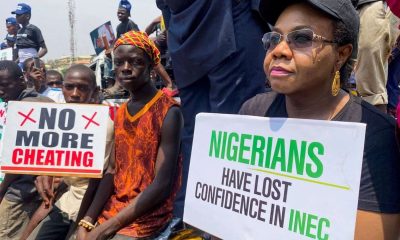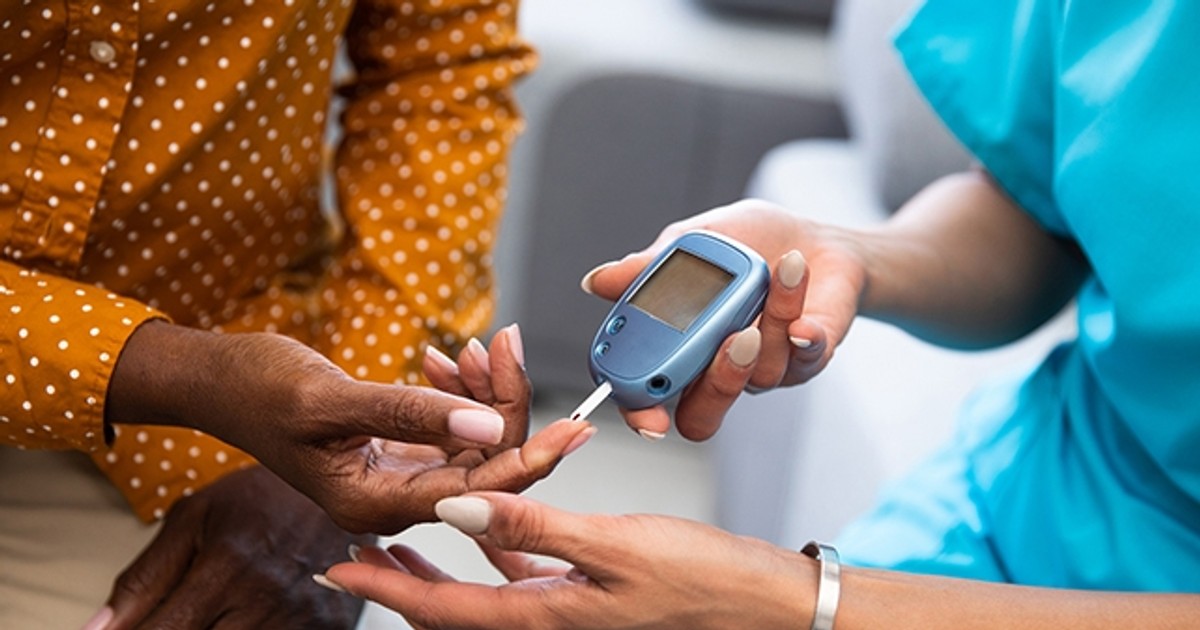Millions of Nigerians battling diabetes are facing severe hardship as the soaring cost of healthcare, fueled by economic challenges, threatens their survival.
The Diabetes Association of Nigeria (DAN) recently raised urgent concerns, stating that an estimated 30,000 to 40,000 Nigerians die each year due to inadequate access to essential medical services.
This crisis has been exacerbated by the removal of fuel subsidies and a foreign exchange crisis, leading to inflation and skyrocketing prices for both treatment and daily necessities.
According to Dr. Ejiofor Ugwu, the National President of DAN, approximately 6 to 8 million Nigerians are currently living with diabetes. However, he warns that this number is likely just “the tip of the iceberg,” as many cases remain undiagnosed due to the lack of routine screening and awareness.
Speaking in Abuja to mark the United Nations’ World Diabetes Day on November 14, Dr. Ugwu emphasized the dire implications of these undiagnosed cases for public health.
“The majority of people living with diabetes in Nigeria face immense challenges, ranging from poverty and a shortage of diabetes care specialists to limited healthcare facilities and prevailing unhealthy cultural beliefs,” Dr. Ugwu explained. “Without immediate intervention, we are on the verge of a national health catastrophe.”
READ ALSO: 1.3 billion People will have diabetes by 2050, report reveals
Patients across Nigeria are feeling the burden firsthand. Mrs. Maria (surname withheld), a civil servant in Abuja, recounted how her struggle to afford basic diabetes care has become an overwhelming ordeal.
“Since May 2024, I haven’t been able to afford insulin therapy or maintain a doctor-recommended diet,” she said. The cost of insulin has surged by nearly 400% in recent months due to currency devaluation, making it unaffordable for many. “A vial of insulin that used to cost N4,000 is now N18,000. If the government doesn’t step in to help, many of us will die.”
Her story reflects the reality of millions. “I have a stable job, but I can’t manage my condition. What happens to those without work or those in rural areas who haven’t even been diagnosed?” she questioned. Mrs. Maria’s anguish is shared by many others who face a grim choice between basic sustenance and necessary medical care.
Economic instability, driven by policy shifts such as the removal of fuel subsidies, has deepened the crisis for healthcare in Nigeria. The higher costs of food and other essentials disproportionately affect those managing chronic illnesses.
“We’re told to avoid certain high-carbohydrate foods, but when even basic foods like wheat and beans are unaffordable, what can we do?” lamented Mrs. Maria. “People now eat whatever they can find, not what they need to stay healthy.”
The consequences of failing to maintain proper treatment can be severe, as illustrated by the case of Mr. Andrew Onah, a diabetic patient whose left leg was amputated following complications from a foot ulcer.
“In 2020, when I was first diagnosed, I managed my condition well. But by late 2022, the financial pressure became unbearable, and I couldn’t keep up with the treatment,” Onah said. “A minor injury turned into an amputation. It’s a nightmare I wouldn’t wish on anyone.”
READ ALSO: Seven diabetes symptoms in your feet
Healthcare experts are urging the government to take immediate action. Dr. Festus Ihongbe Odia, Chairman of the Association of Nigerian Private Medical Practitioners (ANPMP) in Abuja, has advised diabetic patients to consider leaving the country if they can.
“Healthcare costs have reached a point where survival here is nearly impossible for diabetics. The price of insulin has soared from N750 to N24,000,” Dr. Odia said.
“Patients may be better off using the money they would spend on their funerals to leave Nigeria and seek treatment in countries where healthcare is subsidized.”
Dr. Ugwu echoed the call for government intervention, urging for subsidies on diabetes medications and consumables.
“The government should consider a complete tax waiver on the importation of essential diabetes drugs. We also need a comprehensive national survey on non-communicable diseases to inform better healthcare policy making,” he said.
The burden on Nigeria’s healthcare system continues to mount as economic difficulties strain both providers and patients. While many have expressed faith in divine intervention, experts warn that practical policy changes are necessary to avert a full-scale health crisis. Immediate action, including healthcare subsidies and awareness campaigns, could provide crucial relief for the millions facing this silent but devastating condition.
Without such measures, Dr. Ugwu fears that the loss of lives will only continue to rise, leaving millions of vulnerable Nigerians to face an uncertain future.

 Health1 week ago
Health1 week ago
 Business1 week ago
Business1 week ago
 Latest1 week ago
Latest1 week ago
 Football6 days ago
Football6 days ago
 Health6 days ago
Health6 days ago
 Latest1 week ago
Latest1 week ago
 Crime6 days ago
Crime6 days ago
 Latest1 week ago
Latest1 week ago

